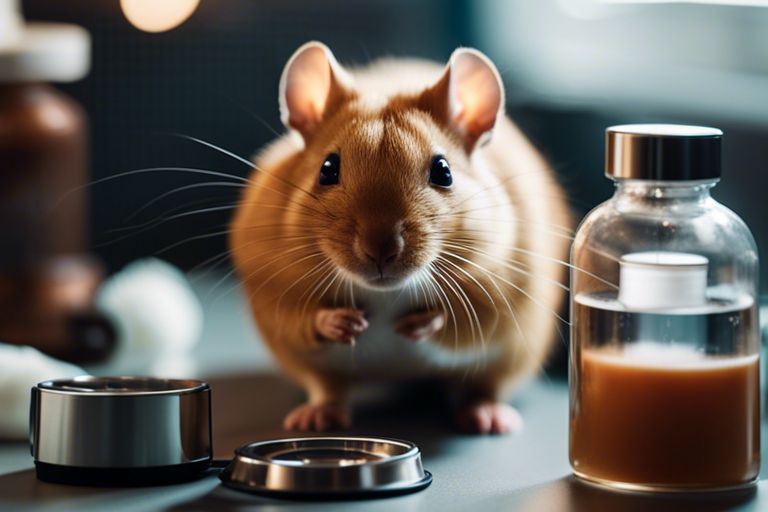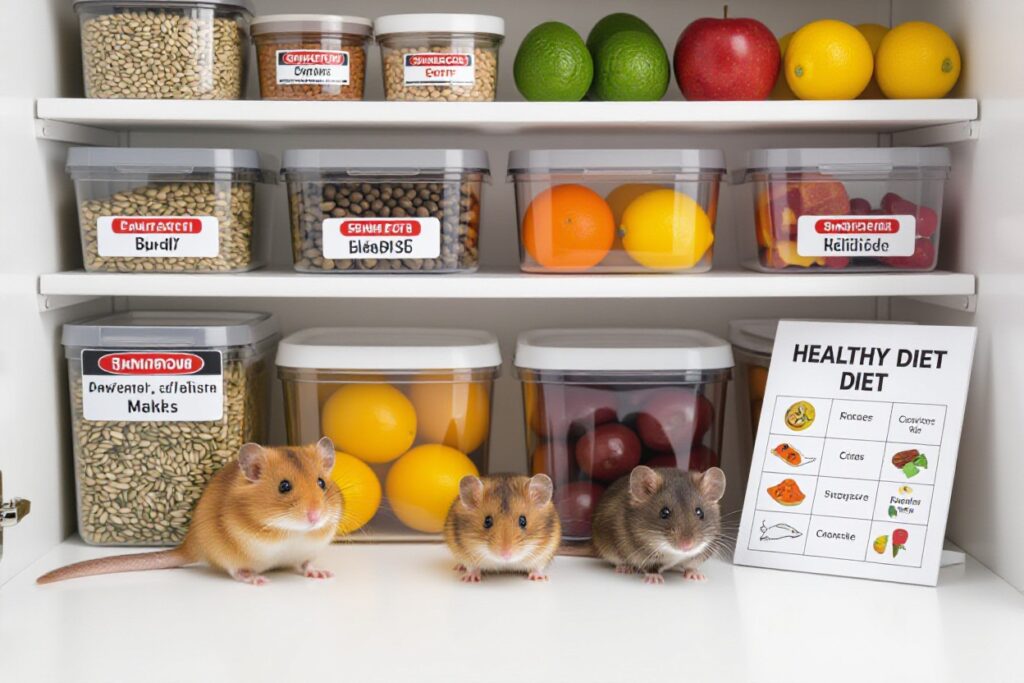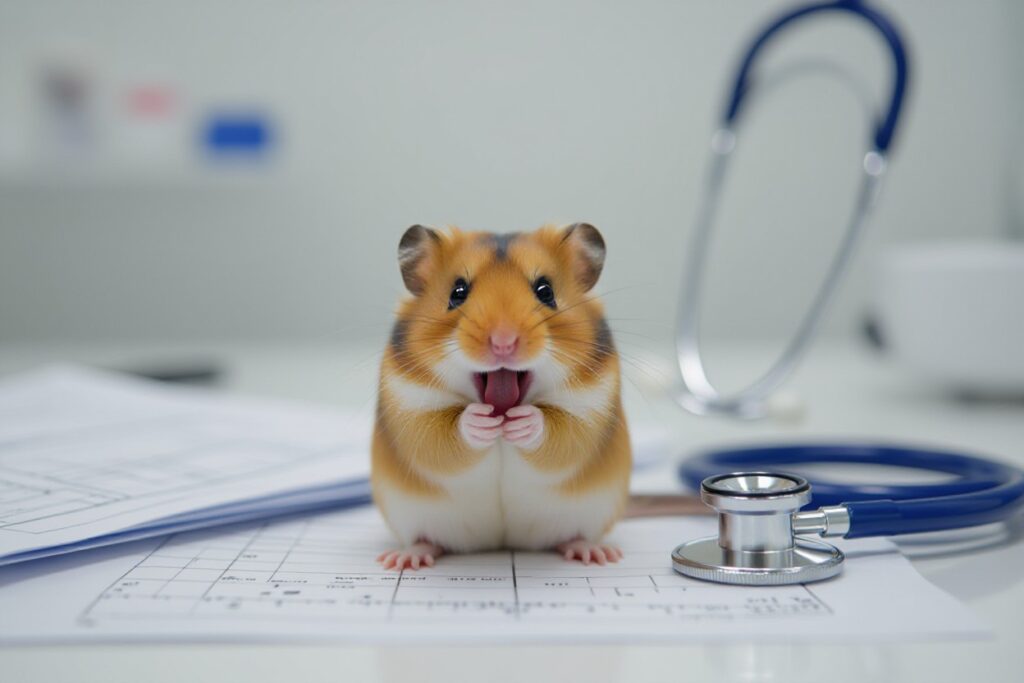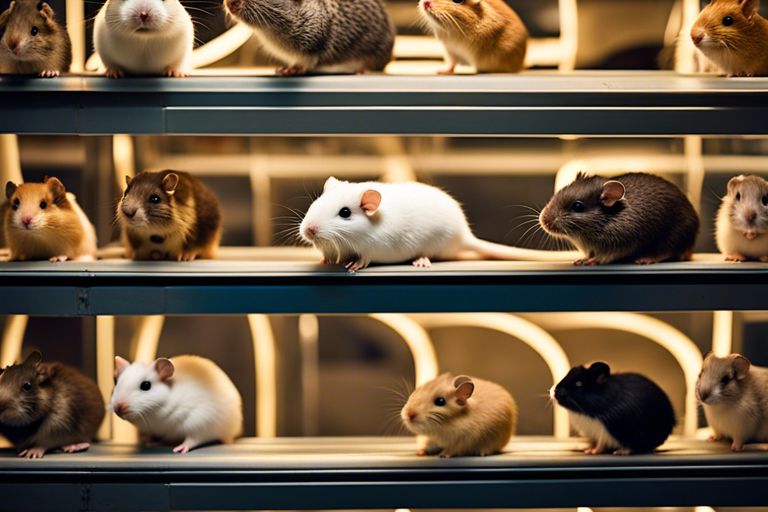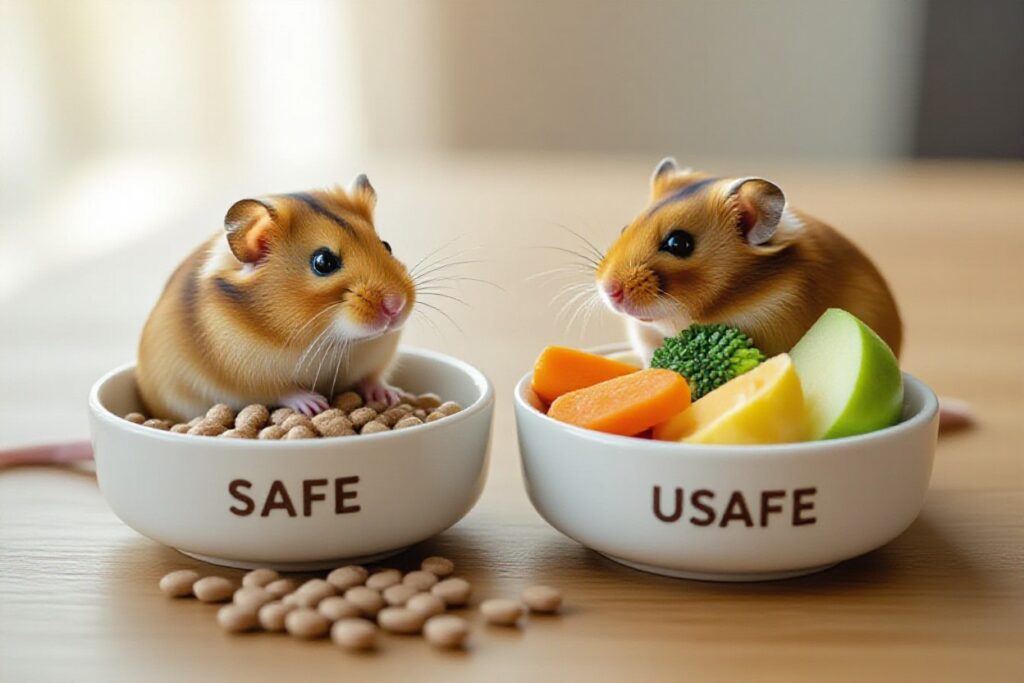Prevention is key when it comes to ensuring the health and well-being of your small furry pets. Rodents, such as hamsters, guinea pigs, and rats, are prone to various health issues that can affect their quality of life. In this guide, we will discuss some of the most common health concerns in rodents and provide effective strategies to help prevent them from occurring.
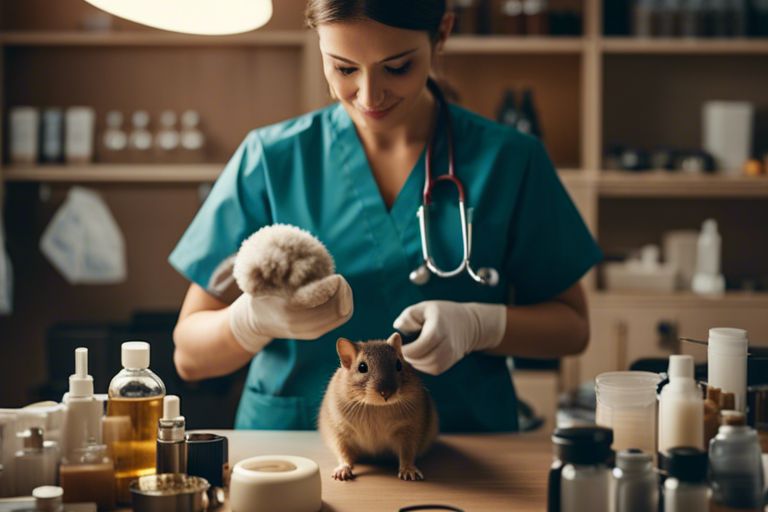
Common Health Issues in Rodents
Respiratory Infections
You must be vigilant when it comes to the respiratory health of your rodents. Respiratory infections are a prevalent issue among rodents and can be caused by various factors such as environmental stress, poor hygiene, or exposure to other sick rodents. Symptoms may include wheezing, sneezing, nasal discharge, and labored breathing.
Gastrointestinal Disorders
Respiratory infections are not the only common health issue in rodents. Gastrointestinal disorders can also afflict these small pets. Conditions like diarrhea, constipation, bloat, and gastrointestinal stasis can occur due to dietary issues, stress, or bacterial infections. Maintaining a balanced diet and providing a clean living environment are necessary in preventing such ailments.
Plus, it is crucial to monitor your rodent’s eating and drinking habits closely. Any sudden changes in appetite, water intake, or feces consistency should be addressed promptly by a veterinarian.
Skin and Coat Problems
The skin and coat health of your rodents is another vital aspect to consider. Skin infections, fur mites, and dermatitis are common issues that can arise due to poor hygiene, low humidity levels, or even inadequate nutrition. Regular grooming and maintaining a clean cage can help prevent such problems.
The right bedding material and a balanced diet rich in necessary nutrients are key factors in promoting healthy skin and coat in rodents.
Dental Diseases
Another concern for rodent health is dental diseases. Rodents have teeth that continuously grow, and if not worn down properly through gnawing on appropriate materials like chew toys and hay, they can develop dental problems such as overgrown teeth, abscesses, or malocclusion. Any abnormalities in your rodent’s eating habits or drooling should prompt a visit to the vet for a dental check-up.
Any delays in addressing dental issues can lead to pain, difficulty eating, and further complications impacting your pet’s overall health.
Parasitic Infestations
To ensure the well-being of your pet rodents, you need to be proactive in preventing parasitic infestations. External parasites like mites and lice, as well as internal parasites like worms, can cause discomfort and health issues in rodents. Regular vet check-ups, proper hygiene practices, and a clean living environment are necessary in preventing parasitic infestations.
An early diagnosis and treatment plan can help eradicate parasites effectively, ensuring your rodent’s health and well-being.
Obesity and Nutritional Deficiencies
Any excessive weight gain or nutritional deficiencies in your rodents can have detrimental effects on their health. Obesity can lead to a range of health issues, including heart disease, joint problems, and diabetes. Conversely, inadequate nutrition can result in vitamin deficiencies, weakened immune system, and poor overall health.
Obesity is preventable through a balanced diet, portion control, and regular exercise. Providing a varied diet with fresh fruits, vegetables, and high-quality pellets is necessary in preventing nutritional deficiencies in rodents.
Tumors and Cancers
Assuming your rodents’ health also involves being aware of the possibility of tumors and cancers. These can manifest in various forms, such as mammary tumors, skin tumors, or internal cancers. Regular health checks and observation of any unusual lumps or bumps are crucial in early detection and treatment of such conditions.
Disorders like seizures, sudden weight loss, or changes in behavior can also indicate underlying health issues that require immediate veterinary attention for proper diagnosis and management.
Factors Influencing Rodent Health
Genetics and Breeding
While rodents generally have a resilient nature, genetics and breeding play a significant role in their overall health. Breeding practices, such as inbreeding or genetic mutations, can lead to health issues in rodents. It is crucial to obtain rodents from reputable breeders to ensure the genetic health of the animals. Genetic predispositions to certain diseases can also impact the health of rodents, making regular veterinary check-ups imperative in monitoring and addressing any potential issues.
Environmental Stressors
Little environmental stressors can have a big impact on the health of rodents. Factors such as loud noises, extreme temperatures, overcrowding, or sudden changes in their environment can cause stress and compromise their immune system. Providing a comfortable and stable living environment, as well as regular enrichment activities, can help reduce stress levels in rodents and promote overall well-being.
The diet and nutrition of rodents play a crucial role in their overall health and well-being. Even small deficiencies in imperative nutrients can lead to various health issues, including obesity, malnutrition, and dental problems. It is important to offer a balanced diet that includes high-quality pellets, fresh vegetables, and occasional treats to ensure that rodents receive all the necessary nutrients for optimal health.
Age and Life Stages
While rodents are relatively short-lived animals, their age and life stages greatly influence their health. Young rodents require a diet rich in protein and energy to support their growth and development, while older rodents may benefit from a diet tailored to their changing nutritional needs. Regular veterinary check-ups are important to monitor the health of rodents at different life stages and address any age-related issues that may arise.
Another factor to consider is the social behavior of rodents. Some species are more social and thrive in group settings, while others are solitary and prefer to live alone. Understanding the social needs of rodents is crucial in providing appropriate housing and enrichment to support their mental and emotional well-being.
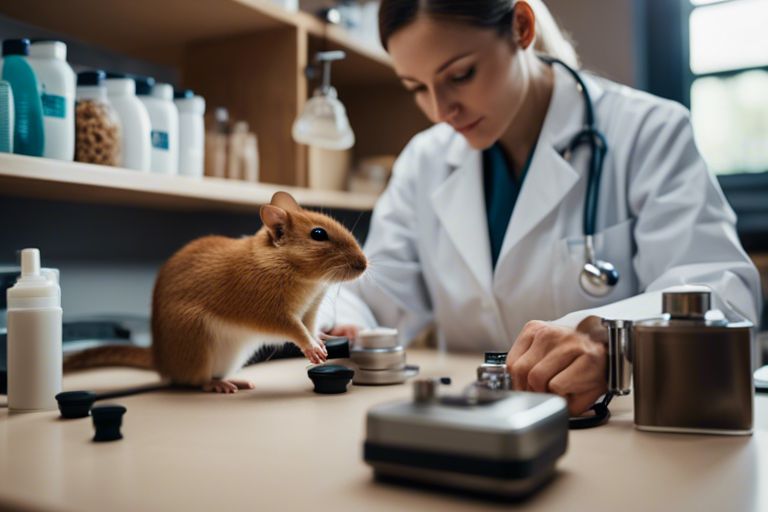
How-To Identify Signs of Illness in Rodents
Behavioral Changes
To ensure the well-being of your rodent companion, it is crucial to pay attention to any behavioral changes. All rodents have their unique personalities and behaviors, making it crucial to notice any deviations from their normal routines. Signs of illness may include lethargy, restlessness, aggression, hiding more than usual, or changes in appetite and water intake. If you observe any of these behaviors, it is important to monitor them closely and seek veterinary attention if they persist.
Physical Symptoms to Watch For
Physical symptoms can also be indicative of underlying health issues in rodents. To properly care for your furry friend, regularly check for any physical changes such as weight loss, lumps or bumps, discharge from eyes or nose, unkempt fur, or abnormal posture. Additionally, pay attention to their breathing patterns, as rapid or labored breathing could signal respiratory problems. Early detection of these symptoms can help in preventing further complications.
Identifying signs of illness in rodents can be challenging, as they are prey animals that may hide signs of weakness. However, as a responsible pet owner, it is crucial to be observant and proactive in monitoring your rodent’s health. Regular health checks and creating a bond of trust with your pet can help in identifying any subtle changes early on.
When to Consult a Veterinarian
Even with close monitoring, some health issues in rodents may require professional intervention. If you notice persistent behavioral changes or physical symptoms, it is imperative to consult a veterinarian specializing in exotic pets. Early diagnosis and treatment can greatly improve the prognosis for your pet rodent. Trust your instincts as a pet owner, and seek professional help when in doubt.
A timely visit to the veterinarian can provide your rodent with the necessary care and treatment they need to recover from illnesses. Bear in mind, your proactive approach in addressing health concerns can make a significant difference in the well-being and longevity of your beloved rodent companion.
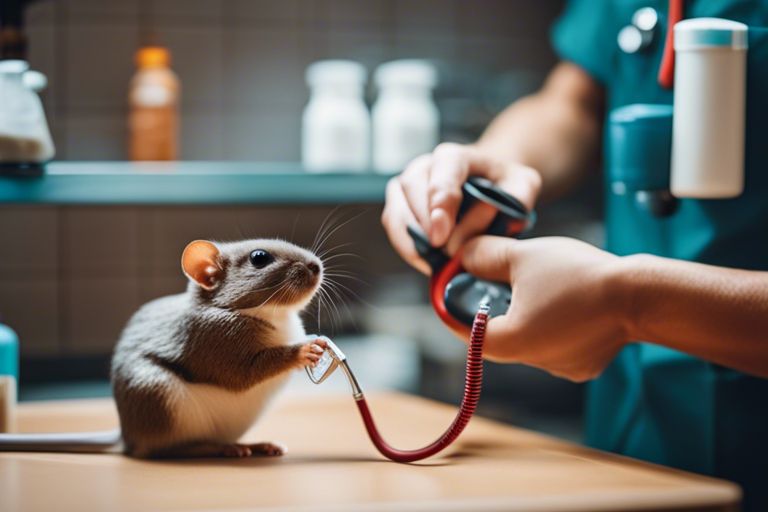
Tips for Creating a Healthy Living Environment
Your rodent’s health and well-being greatly depend on the living environment you provide. By following some simple guidelines, you can ensure that your furry friend stays healthy and happy.
The Right Habitat Set-Up
Any rodent owner should focus on creating a habitat that mimics their natural environment. This includes providing proper bedding, nesting materials, hiding spots, and ample space for exercise. Different rodents have specific habitat requirements, so it’s crucial to research and tailor the set-up accordingly to meet their needs.
Recognizing signs of stress or discomfort in your rodent can indicate that the habitat set-up may need adjustments. Keep an eye on their behavior and make changes as needed to ensure they are thriving in their environment.
Maintaining Cleanliness and Hygiene
You must prioritize cleanliness in your rodent’s living space to prevent health issues. Regularly clean their habitat, including removing any waste, soiled bedding, and uneaten food. Use pet-safe cleaning products to sanitize the area without exposing your rodent to harmful chemicals.
You should also wash food and water containers daily and replace bedding frequently to keep the environment fresh and hygienic. Proper hygiene practices can significantly reduce the risk of common rodent health problems, such as respiratory infections and parasites.
Right bedding materials are crucial for maintaining cleanliness in your rodent’s habitat. Opt for dust-free bedding to prevent respiratory issues and change it regularly to keep the environment fresh and odor-free.
Importance of Enrichment
The mental and physical well-being of your rodent is just as important as their physical health. Providing enrichment activities in their environment is vital for preventing boredom and promoting natural behaviors. Include items like chew toys, exercise wheels, tunnels, and climbing structures to keep your rodent mentally stimulated and physically active.
The incorporation of enrichment activities can prevent stress-related behaviors like over-grooming or aggression in rodents. Make sure to rotate and introduce new enrichment items regularly to keep them engaged and entertained. Regular interaction and playtime with your rodent can also contribute to their overall well-being and strengthen the bond between you.
Dietary Recommendations and Tips
Essential Nutrients for Rodents
For optimal health, rodents require a balanced diet rich in vital nutrients. Ensure your pet receives adequate amounts of protein, fiber, vitamins, and minerals. Protein is vital for muscle growth and repair, while fiber aids in digestion and prevents constipation. Vitamins and minerals are crucial for overall well-being and immune function.
Include a variety of fresh vegetables, fruits, and seeds in your rodent’s diet to meet their nutritional needs. If unsure about specific nutrient requirements, consult with a veterinarian specializing in exotic pet care to determine the best diet plan for your furry friend.
Foods to Avoid
With rodents, it’s crucial to avoid feeding them foods that are high in fat, sugar, and salt. These can lead to obesity, diabetes, and other health issues in your pet. Additionally, steer clear of foods such as chocolate, caffeine, and avocado, which are toxic to rodents.
Recommendations:
Creating a Balanced and Varied Diet
Varied diets are vital to prevent nutrient deficiencies in rodents. Rotate different types of vegetables, fruits, grains, and proteins to ensure your pet receives a wide range of nutrients. Avoid relying solely on commercial rodent pellets, as they may not provide all the necessary vitamins and minerals your pet needs.
The key to a healthy rodent diet is balance. Provide a mix of fresh, natural foods that mimic what rodents would eat in the wild. Consider incorporating treats like small bits of nuts or dried fruits in moderation as rewards, but do not rely on them as the main source of nutrition.
Preventative Health Measures
Regular Health Checks
For preventative health measures in rodents, regular health checks are crucial. Owners should routinely inspect their pets for any signs of illness or injury. This includes checking for abnormal behavior, changes in appetite, weight loss, or lumps and bumps on the body. By conducting regular health checks, owners can detect any health issues early on and seek veterinary care promptly.
Parasite Prevention and Control
On top of regular health checks, parasite prevention and control are important in maintaining the health of rodents. Parasites like fleas, mites, and worms can pose serious health risks to rodents if left untreated. Owners should consult with a veterinarian to establish a parasite prevention plan tailored to their pet’s specific needs.
Measures such as keeping the rodent’s living environment clean and practicing good hygiene can help prevent parasite infestations. Additionally, using vet-recommended parasite prevention products can further safeguard the rodent from these harmful invaders.
Vaccination and Routine Treatments
Little is known about the vaccination and routine treatment needs of rodents. However, some species may benefit from certain vaccinations or routine treatments to prevent common health issues. It is advisable for owners to consult with a veterinarian who specializes in exotic pets to determine the best preventative measures for their rodent.
For instance, some rodents may require vaccinations against specific diseases prevalent in their species or region. Routine treatments such as dental care, nail trims, and parasite prevention can also contribute to keeping rodents healthy and thriving.
To wrap up
Drawing together the various common health issues that can affect rodents, it is evident that timely identification and proactive prevention measures are crucial in ensuring the well-being of these small pets. From respiratory infections to dental issues, it is necessary for rodent owners to be vigilant and observant of any signs of illness in their furry companions.
By providing a clean and stimulating environment, a balanced diet, regular veterinary check-ups, and appropriate handling, rodent owners can significantly reduce the risk of their pets developing common health problems. Do not forget, early detection and preventive care are key in promoting the health and longevity of our beloved rodent friends.
FAQ
Q: What are common health issues in rodents?
A: Common health issues in rodents include respiratory infections, dental problems, parasites, and tumors.
Q: How can respiratory infections be prevented in rodents?
A: Respiratory infections in rodents can be prevented by providing a clean and well-ventilated living environment, avoiding exposure to cigarette smoke, and handling your pet gently to reduce stress.
Q: What are some signs of dental problems in rodents?
A: Signs of dental problems in rodents include overgrown teeth, drooling, difficulty eating, and weight loss. It is important to provide them with chew toys to help keep their teeth healthy.
Q: How can parasites be prevented in rodents?
A: Parasites in rodents can be prevented by keeping their living area clean, providing fresh food and water daily, and regularly checking for any signs of infestation such as itching or hair loss.
Q: Are there ways to prevent tumors in rodents?
A: While some tumors in rodents are genetic and cannot be prevented, providing a balanced diet, regular exercise, and avoiding exposure to environmental toxins can help reduce the risk of developing tumors.
